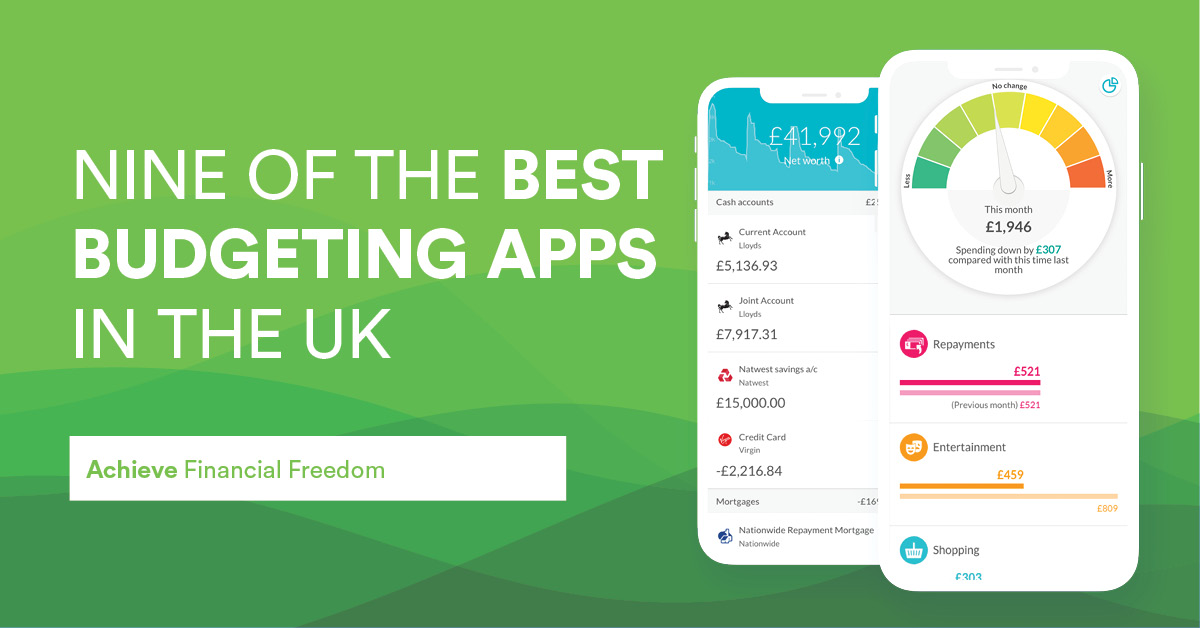Save Money
It’s not about how much money you make, but how you save it. Save money with our actionable tips, strategies and guides. We’ll share some fantastic information on how you can cut costs and save money at home and in your business.
Featured Video
The ultimate guide to a financial detox
Want to get your finances in check? In this video, I’ll show you how to create the ultimate financial detox plan and create some positive spending habits for the year ahead. Getting started may be hard, but you’ll thank yourself a month, a year or 10 years from now.
Want to save money easily?
Start saving money effortlessly! Sign up for my newsletter today to receive all the latest money-saving tips and brilliant advice, without any spam. Plus, you’ll get FREE access to my 10-Day Financial Freedom Mini Course, where I’ll break down the exact steps to reach financial independence.
Popular Posts

How to claim £400 energy support vouchers
It was reported recently nearly half of those eligible to receive the £400 energy support vouchers in England, Scotland, and Wales have not redeemed their vouchers. Many of these households are customers with prepayment meters

The ultimate guide to personal finance planning

9 of the best budgeting apps in the UK

Is the Easyjet Plus membership worth it?
Save Money Series

How To Save £10K FAST
According to research by money.co.uk, 31% of us save less than £100 per month and nearly 26% of those surveyed have less than £1000 saved

What are this year’s Blue Light Card Christmas offers?
Exceptional deals and discounts with the Blue Light Card Christmas offers.

Nectar Card Changes: Introducing Nectar Prices
Sainsbury’s has just announced changes to their Nectar loyalty programme. And for the eagle-eyed shoppers among us, their new scheme looks somewhat similar to the
Saving Money FAQs
Whenever you are spending money on impulse purchases, following the 30-day rule you would put the money into the savings account for 30 days before deciding to make the purchase or not.
Make a budget: Start by figuring out how much money you have coming in and how much you’re spending. Then, create a plan to spend within your means so you can avoid overspending.
Find out more: Check out our budgeting guideTrim the fat: Take a look at your expenses and see where you can cut back. Cancel any subscriptions or services you’re not using, like that gym membership, you’ve been meaning to use but haven’t.
Cash in on rewards: Don’t leave money on the table! Sign up for cashback programmes, use credit card rewards, and look for discounts to save money on your purchases. Every little helps! We have guides on how to make the most of the Tesco Grocery & Clubcard App as well as the Asda Rewards App.
Make saving and investing automatic: Set up automatic transfers from your current account to your savings account or investments each month. That way, you’ll save money before you even have a chance to spend it.
Cook more at home: Eating out and grabbing takeaways can really eat into your budget. Plan your meals in advance and cook more at home to save money on food spending and dining out.
The 50/30/20 rule is a budgeting strategy that helps you divide your income into three categories:
The first category is essential expenses. This includes things like rent or mortgage payments, utilities, food, groceries, transportation, and other bills. You should aim to spend no more than 50% of your income on these things.
The second category is discretionary spending. This includes things like dining out, entertainment, shopping, and hobbies. You can allocate up to 30% of your income towards these things.
The third category is saving and investing. This includes emergency funds, retirement savings, or paying off debt. You should aim to save or invest at least 20% of your income.
By following the 50/30/20 rule, you can prioritise your essential expenses, enjoy some discretionary spending, and save for the future simultaneously. Remember that this is just a guideline and you may need to adjust it to fit your unique situation.
To begin, start by keeping track of your expenses and creating a budget. This will help you to identify areas where you can cut back on spending and save money. Look out for discounts and coupons to save money on groceries, clothes, and travel.
Simple changes to your daily routine can also help you save money. Try packing your lunch instead of buying it or taking public transportation instead of driving. These little changes can add up over time and help you to reach your financial goals.
Lastly, consider ways to increase your income such as starting a side hustle or negotiating a raise at your job. With a bit of effort, you can find clever ways to save money and build financial security for the future.
- Set a savings goal: Decide how much you want to save each month and set a specific savings goal. This will help you stay focused and motivated to save. Make sure your goal is achievable and realistic for your income level. If you need to earn more income to reach this savings goal, check out our Make Money category.
- Automate your savings: Consider setting up an automatic transfer to move a fixed amount of money into your savings account every month. This way, you won’t have to think about saving and it will become a habit. You can also set up automatic contributions to your ISA or retirement accounts, to ensure you’re saving for your future.
- Cut back on expenses: Look for ways to reduce your expenses, such as eating out less often, cancelling unnecessary subscriptions, and shopping for deals. Challenge yourself to find creative ways to save money, such as taking advantage of free entertainment options or finding alternative transportation methods. The money you save can go towards your savings goal.
- Track your expenses – Look to see where you are spending your money. Those items or services that have increased in value the most are the ones to tackle first.
- Look for deals and discounts – Sign up for rewards apps and asking for discounts on your purchases should become second nature to you. Repeat after me: It is not embarrassing to ask for a discount.
- Eat seasonally or stock up – Food that is in season is often the cheapest. Buying food when it is cheap and stocking up for later is a great way to keep your food bills down.
- Build an emergency fund – Always have 3-6 months of living costs in hand. Going into debt because of the increasing cost of living is a pathway to disaster. Fix this, before it becomes a problem.
Latest Posts

What are the current Tesco Whisky offers?
I once offered an Irish whiskey drinker a Scotch whisky. I don’t have to type another word for you to know how the rest of the story went.

What are the Lidl offers this week?
Before I get into this article, I have to point out that it is indeed NOT sponsored by Lidl. However, as a Lidl shopper and

McDonald’s Monopoly 2023
McDonald’s Monopoly 2023 and Winning Sips Competition – Update April 2023 If you’re eagerly awaiting the launch of McDonald’s Monopoly 2023 then we’ll be updating

What is benefit in kind?
Benefit in kind or BIK as it’s also known, refers to any benefits that an employee or director receives from their company, in addition to

Tesco Clubcard Rewards Value Reduced
This week, Tesco has announced plans to significantly alter the value of your Clubcard Reward Points. Starting in June, Tesco Clubcard points will only be

What is an ISA? – Individual Savings Account
An Individual Savings Account or as it is commonly abbreviated to “ISA”, is a type of tax-advantaged savings and investment account available to residents of

Farmfoods Offers, Vouchers & Deals This Week
Starting as a butcher shop in Aberdeen over 60 years ago, Farmfoods offers a fantastic selection of frozen foods, groceries, chilled foods, bread, milk, fresh

Tesco Grocery & Clubcard App: Everything You Need To Know
The Tesco Clubcard and Pay+ apps are soon to be scrapped. Fear not my savvy money-saving friends, for Tesco, has already launched their replacement app

Boots Advantage Card Changes: Here’s What You Need to Know
Boots, one of the UK’s leading health and beauty retailers, is changing its Advantage Card loyalty programme by reducing the number of points earned per

Should I pay down my mortgage or invest?
One of the most popular questions I receive from readers, friends and family is whether you should pay down your mortgage or invest the money

How can I have debt on my prepayment meter?
I was recently contacted by a reader asking why they were in debt, “How can I have debt on my prepayment meter?” As they are

What is a financial coach?
A good coach can transform your life. Whether it’s a fitness coach, a business coach or indeed a financial coach, using the experience of others

Is starting a pension at 50 worth it?
It’s never too late to start a pension and even a small pension is better than nothing. But starting a pension at 50 brings with

How to avoid the Sky TV & Broadband price increase
Sky has just announced that their TV and Broadband prices are due to increase by 8.1% this April, putting the price of their broadband and

How much is a Haven Play Pass?
Whenever you book your staycation with Haven, you have the option of booking a Haven Hideaway or a Haven Holiday package. It’s important to understand

5 Top Valentines Day Money Saving Tips
Let’s be completely honest here. Saying you show love and affection to your partner the other 364 days a year, does not negate the fact

How much I should save in cash versus investing?
One of the most popular questions I am asked is how much I should save in cash versus investing. You should always save the following

How to avoid the EE 14.4% price increase
Many mobile network providers tempt us with the lure of cheaper tariffs and the discounts seem to grow for longer multi-year contracts. However, if you

Should I take a salary advance?
It’s the first thing on a Monday morning and your boiler has packed in. The plumber is due tonight, but you don’t get paid for

What is a building society roll number?
I have been asked to supply a building society roll number for a payment to my account. But what is this?

How to start saving money effortlessly with the 52-week challenge
Often the hardest part of saving money is getting started. It can feel like a goal far beyond your reach. Why is this? When many

How to redeem your £600 Energy Payment voucher
The Energy Bills Support Scheme begins its rollout this month and the electricity suppliers of Northern Ireland have been tasked with the distribution of the

9 of the best budgeting apps in the UK
Find the budgeting app that works best for you and start taking control of your finances today.

Financial detox – The ultimate guide
Christmas is a time for indulging and splurging. It is also a time for giving, receiving, spending and of course, enjoying yourself. Even if you

Next Sale Dates
With up to 50% off clothing, footwear and accessories, the Next Sale is one many shoppers mark in their calendar.

Ways to save money this Christmas
Enjoying Christmas can be costly. Here are our top tips to reign in the cost of this festive season. And above all else, don’t go into debt

Asda extends its Blue Light Card discount until the 31st March 2023 at the earliest
Asda has extended their 10% discount for Blue Light Card holders until the 31st March 2023.

First Direct 7% regular saver
First direct have launched a high interest rate savings account. But does it live up to the hype?

How to get a free Santa letter for your child
Get a personalised free Santa letter sent to your child this Christmas with a wonderful service by Hallmark and the Royal Mail.

What is the Warm Home Prescription?
What is the Warm Home Prescription and can I get this from my Doctor?

What are this year’s Blue Light Card Christmas offers?
Exceptional deals and discounts with the Blue Light Card Christmas offers.

What to do if you are affected by the made.com collapse
Are you one of the 12,000 customers awaiting products from made.com? You may not be able to get a refund from the firm, but below we’ll show you how you may still be able to claim one from your credit card or bank.

Is the Easyjet Plus membership worth it?
Where I live, we’re not blessed with an array of airlines departing for foreign lands. What we do have though, is access to two of

How to maximise savings with the Asda rewards app
The Asda rewards app is the only official loyalty scheme for the general public to make savings at the Asda supermarket chain. It is available

How to claim £400 energy support vouchers
It was reported recently nearly half of those eligible to receive the £400 energy support vouchers in England, Scotland, and Wales have not redeemed their

What is the McDonald’s Gold Card?
This year as part of the McDonald’s Monopoly Double Peel prize draw competition, the international fast-food giant announce the exclusive giveaway of 1,000 VIP McDonald’s

Free Jacket Potato with Heinz Beanz at Morrisons
Heinz and Morrisons have teamed up this half-term break to give a helping hand and a warm meal to those in need. Simply ‘Ask for

Asda movie deal – Free Sky Store movie with Asda meal deals
As the nights draw in this winter, many of us will be choosing to settle down with a pizza or a meal deal and a

SSE Airtricity gas suspending minimum consumption charges
It’s hard to imagine a letter arriving through your door from an energy supplier and considering it to be bringing good news to your home.
Saving Money For Your Future Self
Alongside earning more, saving is the most important factor to setting a strong a foundation in your journey towards financial freedom. Saving and the dirty word that is frugality, is where we have most control in our finances, but can often be the hardest hurdle to overcome.
For many the thought of being frugality conjures up all sorts of mental imagery. But let’s be clear, being frugal does not mean cheap. It means spending your money where you value it most and saving money where you find little to no value.
We aim to cover many topics in our save money category including: money saving tips, delayed gratification and budgeting. If you want a topic covered, please do feel free to drop us a message via our social channels.